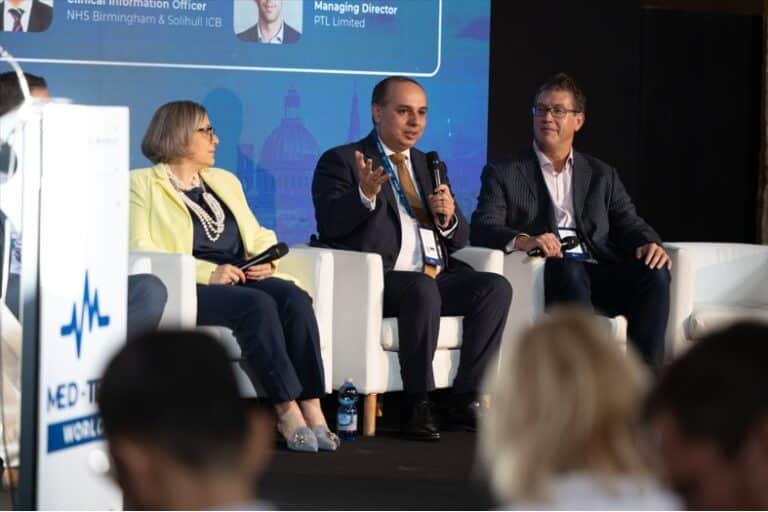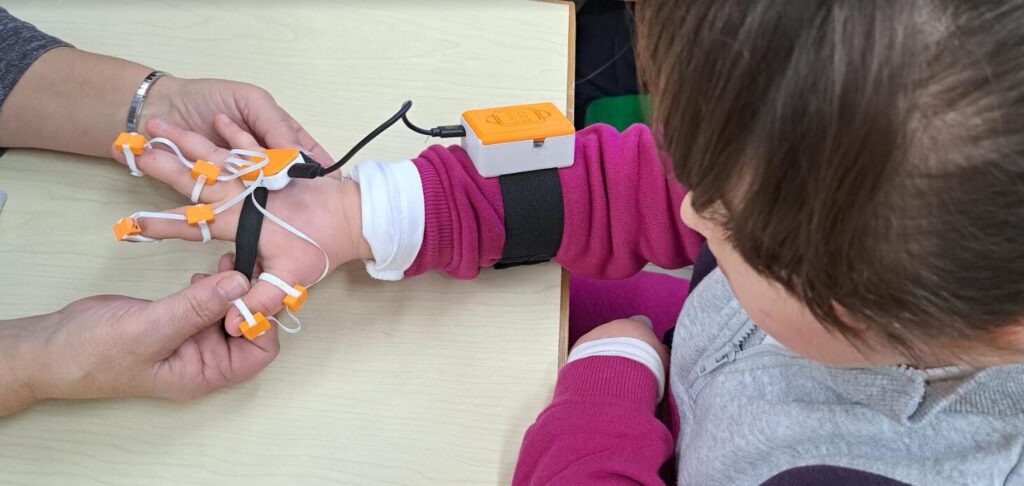
Digital health in Primary Care: Four must-know insights
How has the digital landscape in primary care evolved, and what’s next? What about the government’s role in steering digital health initiatives? Solutions to maintaining a motivated healthcare workforce? Is it about time the healthcare model is shifted from treating sickness to preventing it?
Explore these questions and more in this article with insights from a dedicated expert panel from last year’s Med-Tech World Malta.
Digital: The prime innovation in Primary Healthcare?
In October, a panel gathered at Med-Tech World Malta to discuss The Role of Digital in Primary Healthcare . Guided by James Somauroo, Co-Founder and CEO of SomX, the insightful discussion brought together the following experts:
- Joseph Pearson, CMO at Health Drive Digital;
- Masood Nazir, GP, Medical Director and Chief Clinical Information Officer at NHS Birmingham & Solihull ICB;
- Roseanne Camilleri, CEO at Malta Primary Health Care;
- Pierre Attard, Managing Director at PTL Limited.
Somauroo skillfully set the tone for the panel discussion on digital technology in primary healthcare, blending expertise with engaging communication. Navigating through patient-facing technology, preventive measures, and the significance of virtual wards, he adeptly introduced key topics like the importance of AI and improved work environments.
Elevating primary care: From digital reflections to baseline implementation
In a comprehensive exploration of the digital landscape in primary care, Pierre Attard offered valuable insights into its historical trajectory. He accentuated the transformative role played by electronic health records and prescriptions, illustrating the evolution of digital touchpoints in the healthcare sector.
“Health is a data-rich industry,” noted Attard, underscoring the importance of structured information for efficient patient care.
Masood Nazir, a seasoned family physician, reinforced the discussion by illustrating the fundamental importance of addressing basic needs in digital implementation. He echoed the sentiment that digital solutions should make sense to both patients and staff.
“Digital is not as easy as opening your smartphone. It needs to make sense to the user.”
The Government’s role in promotion and implementation
 In a similar vein, the crucial role of the government in steering digital health initiatives was discussed, ultimately shedding light on Malta’s commitment to robust digital health strategies and regulations. The discourse extended to the collaborative efforts between the government and private health providers, recognizing their joint responsibility in delivering comprehensive and seamless healthcare solutions.
In a similar vein, the crucial role of the government in steering digital health initiatives was discussed, ultimately shedding light on Malta’s commitment to robust digital health strategies and regulations. The discourse extended to the collaborative efforts between the government and private health providers, recognizing their joint responsibility in delivering comprehensive and seamless healthcare solutions.
“Our electronic patient record system is pivotal,” noted Roseanne Camilleri. “Connecting national screening with health centres ensures a loop for comprehensive patient care.
The conversation turned to address AI, a near-inevitability nowadays, as Attard highlighted how “The commitment from the government is evident in the AI strategy and digital health initiatives, pushing Malta to the forefront of digital healthcare in the EU.”
On this note Camilleri spotlighted a key use-case for AI, suggesting that “For decades, remote monitoring systems have existed for specific conditions like arrhythmias, angina, and neurological problems. Directing AI toward collecting data in this area could be highly effective, triggering timely alarms when issues arise.”
Staff well-being
Addressing the challenges of maintaining a motivated and efficient healthcare workforce, Masood Nazir highlighted the importance of staff well-being, besides the aforementioned user-friendly digital solutions.
He emphasised the complexity of introducing digital tools, stating that it requires not only technological implementation but also staff engagement.
“Help us help the patients. Simplify the tools we use to care for patients; prioritise simplicity and invest in comprehensive training.”
Shifting the Healthcare Model to prevention
Joseph Pearson advocated for a transformative approach, urging a shift from treating sickness to preventing it. He shared his experience of creating a virtual ward with Fitbit to monitor indicators and prevent common health issues.
Furthermore, Pearson underscored the importance of addressing several lifestyle factors, planning to promote overall health and prevent individuals from entering the healthcare system.
“I’m eager for a collective mindset shift. It might sound unconventional, but let’s step away from a purely medical approach. Instead, let’s focus on lifestyle, job design, and city planning. How can we create a healthier life, preventing people from entering the overburdened healthcare systems that are already there?”
Stay connected, with Med-Tech World
Whether you’re eager for more insightful content from our conference keynotes and panels or hungry for the latest in MedTech news, we’ve got you covered. Bookmark our news page for a quick update, and don’t forget to follow us on social media to stay in the loop. Subscribe to our YouTube channel now for a front-row seat to the future of healthcare technology!







